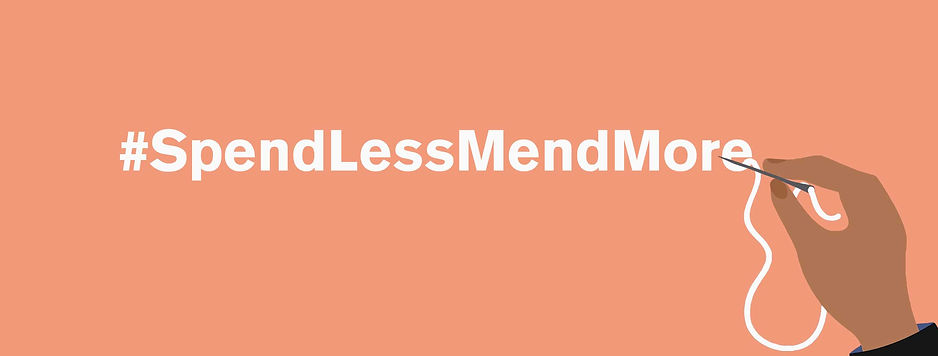Acerca de


The #SpendLessMendMore' Campaign
Through the 50s, 60s and 70s cheap, mass-produced clothing got to be increasingly popular and by the 70s there was a huge market for cheap, polyester clothing that was produced without anyone asking in what conditions they were made or who made them.
The world is always changing and fashion follows this, curating more styles and trends and therefore producing more clothes and with the overproduction of clothing, comes problems. On 24th April 2013, the Rana Plaza Building collapsed killing 1138 people who were working for fast fashion clothing companies. As more information emerged about the tragedy, it became clear that loads of issues came together to result in this catastrophe. The issue that arose from this, is the abuse and exploitation of workers and horrible working environments. This tragedy shed a light on just how little the industry focused on these people. Despite this awful tragedy, sweatshops are still in business and nothing much has changed since.
However, with these exciting changes comes the unfortunate need for people to dispose of clothing they don't wear anymore. Not only is this harmful for factory workers trying to make a living, but this also hurts the environment as clothing is eventually piled up and thrown into landfills.
The '#SpendLessMendMore' Campaign urges audiences to be wary of their expenditure on fast fashion clothing, encouraging them to repair and mend their current clothing. By doing this, people can save money, and more importantly, this will slow down the production of clothing and lessening the issues that come with overproduction. Worker Welfare aims to shed a light on these issues, providing alternatives to purchasing from fast fashion brands as part of our campaign. For our campaign, we have introduced 'The sewing box', which includes sewing materials and a guide to various stitching styles to encourage audiences to learn to mend their own clothes and revamp their wardrobe to their liking! The proceeds earned from this will be donated to underprivileged sweatshop workers in Bangladesh.

